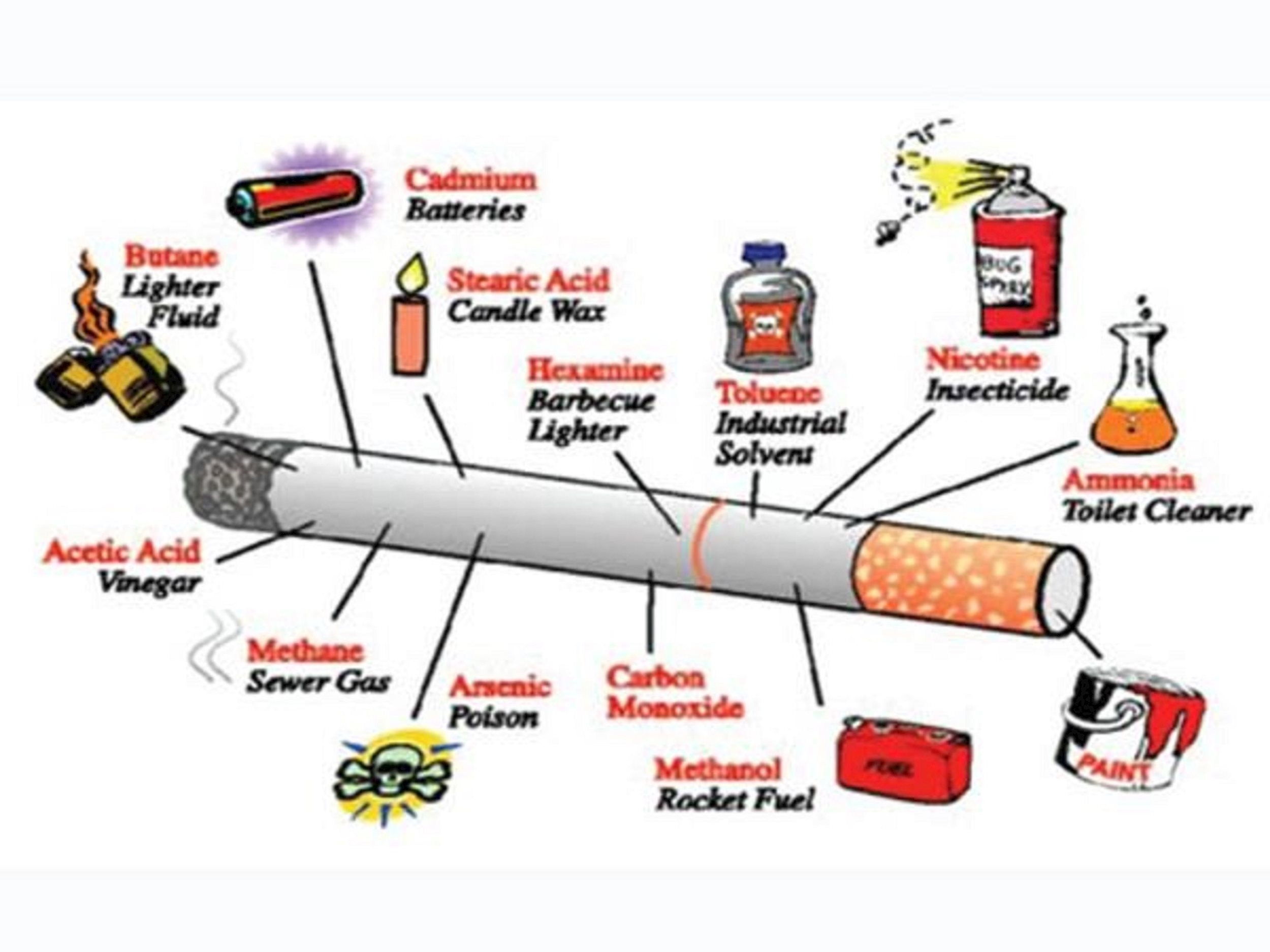A series of super toxic chemicals in cigarettes
There are 70 chemicals in cigarettes that are known to cause cancer and many others that are super toxic.
In a cigarettecigarettecontains approximately 600 ingredients. When lit, it produces more than 7,000 toxic chemicals, hundreds of which are harmful to health, 70 chemicals are confirmed to cause cancer and many others are super toxins.

These are axtone (nail polish remover), ammonia (floor and toilet cleaner), DDT/Dieldrin (pesticide), Arsenic (used in rat poison), CO (automobile exhaust), Toluene (industrial solvent), Methanol formaldehyde (embalming agent)... When these substances enter the body, they will affect the entire nervous, vascular and endocrine systems, causing cardiovascular diseases, memory loss and cancer.
Scientists have identified some of the terrible toxins in cigarette smoke as being divided into four main groups:
1. Nicotine:Nicotine is an addictive substance found in tobacco. The US Food and Drug Administration (FDA) classifies nicotine as a substance with primarily addictive pharmacological properties, similar to the drugs Heroin and Cocaine.
Nicotine's addictive effects are mainly on the central nervous system, causing many neuropsychiatric effects such as euphoria, happy mood, increased attention, increased cognitive activity and short-term memory.
2. Carbon monoxide (CO gas):CO gas has a high concentration in cigarette smoke and will be absorbed into the blood. CO gas quickly enters the blood and takes the place of O2 (oxygen) on red blood cells. And so after smoking, a number of red blood cells in the blood temporarily lose the function of transporting oxygen because they have combined with CO, this is the cause of some chronic lung diseases such as: Asthma, bronchitis, bronchiectasis...
3. Small molecules in cigarette smoke:Cigarette smoke contains many irritants in gaseous and particulate form. These irritants cause structural changes in the bronchial mucosa leading to proliferation of bronchial glands and mucus-secreting cells and loss of ciliated cells.
4. Carcinogens:Cigarette smoke contains about 70 carcinogenic substances. These chemicals affect the surface cells of the respiratory tract, causing chronic inflammation, tissue destruction, cell transformation leading to dysplasia, and then malignancy.
To contribute to improving the quality of life, each of us should voluntarily not smoke at home, at work and in public places where smoking is prohibited.cigarette; at the same time strongly oppose smoking in places with children, pregnant women and the elderly../.
